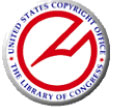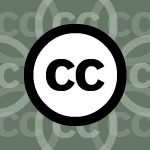        |
ConclusionsThe acknowledgement and celebration of Kairos' 10-year anniversary surely gives us a way in and a reason to examine and reexamine the IP events occurring over the last ten years that have impacted our practices. How these events have reshaped the legal infrastructure we operate within is worthy of further research. Do laws impact composing processes? How? What are the boundaries of the legal infrastructure and how might we push on those? Answering such questions would surely take serious and extended research, and now that copyright law and legal decisions about the architecture of the Internet have moved onto our turf -- the turf of writing -- it is our responsibility as writing experts to navigate through the “boring” stuff of laws and court decisions. Exploitations of legal loopholes have shaped the networks we access and use to teach and write. I think that technorhetoricians should care about this and should be more involved in how the Internet continues to be transformed. Kairos is a perfect place where I hope to see more discussion of IP issues as they shape our practice as researchers, technology innovators, teachers, and writers. As I’ve argued in this webtext, Kairos resists some of the circumscribing legal infrastructure that determines how information is created and shared on the Internet. We should use the space here as a (sometimes) model, a resource, and a place to reflect on how the current intellectual property regime might mediate our practices. |
               |